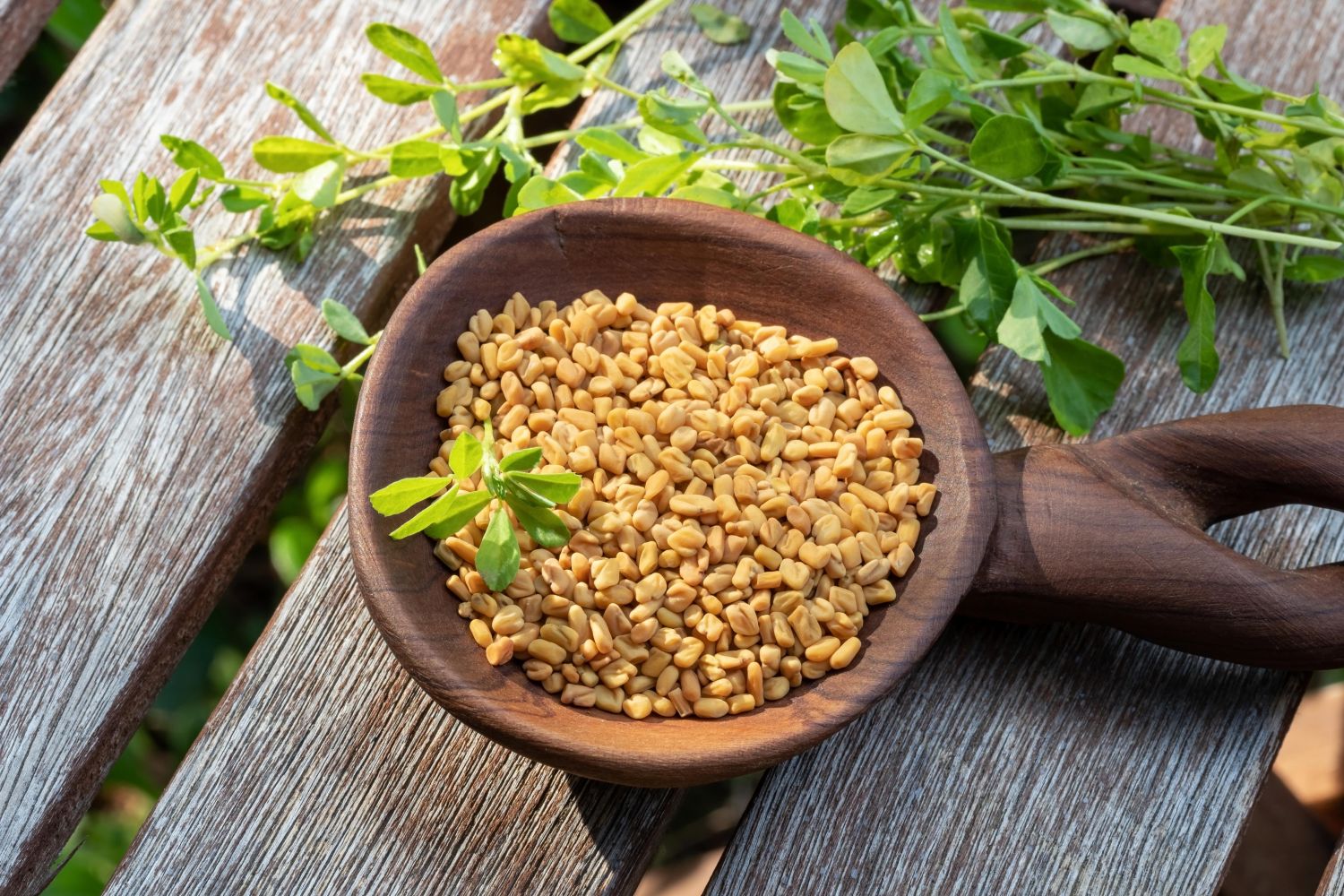In the world of spices and herbs, fenugreek stands out as a versatile and potent ingredient. With a rich history spanning thousands of years, this small, golden-brown seed has played a significant role in culinary traditions, traditional medicine, and even folklore. Join us on a journey to explore the multifaceted world of fenugreek.
Fenugreek Unveiled
Fenugreek, scientifically known as Trigonella foenum-graecum, is an annual herb native to the Mediterranean region and South Asia. It belongs to the Fabaceae family and has a distinct appearance. The plant produces long, slender pods containing small, rectangular, amber-colored seeds. While the seeds are the most commonly used part, fenugreek’s leaves and fresh sprouts are also edible and offer their own unique flavors.

Culinary Uses of Fenugreek Seeds
Fenugreek seeds have a slightly bitter, nutty taste with a hint of maple syrup sweetness. This unique flavor profile makes them a prized addition to various culinary traditions:
- Spice Blends: Fenugreek seeds are a key component in spice blends like curry powder and garam masala. They contribute a complex, earthy note that enhances the overall flavor of these mixtures.
- Indian Cuisine: In Indian cooking, fenugreek seeds are used in many dishes, particularly in lentil and vegetable preparations. They are often tempered in hot oil to release their flavors before being added to a recipe.
- Breads and Pastries: Fenugreek seeds can be incorporated into bread and pastry recipes, adding a distinctive flavor and aroma to baked goods.
- Pickles and Chutneys: Fenugreek seeds are a common ingredient in pickling spice mixtures and chutneys. They provide a hint of bitterness that balances the sweetness and acidity in these condiments.
- Flavor Enhancer: Fenugreek seeds are sometimes used as a natural flavor enhancer in dishes like soups, stews, and sauces.
Health Benefits of Fenugreek
Fenugreek is not only a culinary delight but also a source of potential health benefits:
Digestive Aid: Fenugreek seeds are known for their digestive properties and are used to alleviate digestive discomfort.
Blood Sugar Control: Some studies suggest that fenugreek may help regulate blood sugar levels, making it beneficial for individuals with diabetes.
Breast Milk Production: Fenugreek is believed to stimulate breast milk production in lactating women.
Anti-Inflammatory: The compounds in fenugreek seeds may possess anti-inflammatory properties.
Folklore and Tradition
Fenugreek has a rich cultural history and is deeply ingrained in the traditions of many countries. In ancient Egypt, it was used in embalming rituals, and in India, it has been used for centuries in Ayurvedic medicine. Fenugreek is also associated with various superstitions and folk beliefs in different cultures.

Exploring Fenugreek
Fenugreek is available in various forms, including whole seeds, ground seeds, and dried leaves (known as kasuri methi). It’s important to store fenugreek seeds in a cool, dark place to preserve their flavor and aroma.
Whether you’re a culinary enthusiast, a health-conscious individual, or simply curious about diverse spices, fenugreek offers a wealth of flavors and potential benefits to explore. Its multifaceted nature has earned it a special place in kitchens, medicine cabinets, and cultural traditions across the globe.


